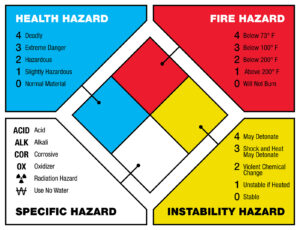
NFPA 99 Guidelines: A Comprehensive Guide to Backup Power Systems in Outpatient Surgery Centers
The National Fire Protection Association (NFPA) is the leading authority on fire, electrical, and related hazards. They set the standard in fire safety and have developed numerous codes and standards designed to minimize the risk and effects of fire. Among these is NFPA 99 – Health Care Facilities Code, which outlines the guidelines for backup power systems in outpatient surgery centers. In this comprehensive guide, we will delve into the specifics of these guidelines and what they mean for your healthcare facility.
Understanding NFPA 99: Health Care Facilities Code

NFPA 99, known as the Health Care Facilities Code, plays a pivotal role in shaping the safety standards for healthcare facilities, encompassing a diverse array of healthcare settings, such as hospitals, clinics, and outpatient surgery centers. These standards serve as a critical guideline, establishing stringent criteria for the construction, equipment, and operational systems within healthcare environments, with the primary objective of safeguarding patients, staff, and visitors.
Within the extensive framework of NFPA 99, numerous essential aspects are meticulously addressed. Among the key domains covered are gas and vacuum systems, where strict protocols are established to guarantee the safe and reliable delivery of medical gases and vacuum services essential for patient care. Additionally, the code sets forth rigorous regulations governing electrical systems, including the vital provisions for backup power systems to ensure uninterrupted healthcare operations in case of power outages or emergencies.
Importance of Backup Power Systems in Outpatient Surgery Centers
Outpatient surgery centers rely heavily on backup power systems to guarantee uninterrupted medical and surgical services. These systems are of paramount significance as they ensure seamless operations even in the face of unforeseen power interruptions, which may result from a multitude of factors, including but not limited to natural calamities and grid malfunctions.
Their role extends far beyond merely sustaining the facility's lighting and HVAC; rather, these power systems serve as the backbone for vital life-saving equipment, encompassing ventilators, monitoring devices, and a wide array of surgical instruments.
To delve deeper into the subject, it's essential to recognize the multifaceted nature of their contribution to healthcare delivery:
- Patient Safety: The foremost concern in outpatient surgery centers is patient safety. In critical moments during surgical procedures or post-operative care, any disruption in power supply could have life-threatening consequences. Backup power systems act as a safety net, ensuring that patients remain protected and cared for, regardless of external power disruptions.
- Surgical Precision: Surgical procedures demand precision and accuracy. Even a momentary power outage can compromise the surgeon's ability to perform effectively, potentially jeopardizing patient outcomes. Backup power systems guarantee that surgical instruments remain operational, maintaining the highest standards of care.
- Life-Sustaining Equipment: Outpatient surgery centers frequently treat patients with chronic medical conditions. These individuals may rely on life-sustaining equipment like ventilators and continuous monitoring systems. Backup power systems become a lifeline in these situations, ensuring the continuous operation of these critical devices, thus preserving patients' lives.
- Data Integrity: Modern healthcare heavily relies on electronic medical records (EMRs) and computerized systems for patient data management. Power disruptions can lead to data loss or corruption, which can hinder patient care and compromise the facility's ability to maintain accurate records. Backup power systems safeguard the integrity of patient information, aiding in effective care coordination.
- Regulatory Compliance: Healthcare facilities are subject to strict regulatory requirements. Backup power systems are often mandated by regulatory bodies to ensure that outpatient surgery centers meet stringent standards for patient safety and continuity of care. Non-compliance can result in severe penalties and legal consequences.
Benefits of NFPA 99 Compliance in Outpatient Surgery Centers
Compliance with the National Fire Protection Association (NFPA) 99 guidelines for backup power systems in outpatient surgery centers goes far beyond mere regulatory adherence. These guidelines are meticulously crafted to bolster patient safety, safeguard critical medical equipment, and ensure the uninterrupted functionality of healthcare facilities. Here, we delve into the multifaceted advantages of NFPA 99 compliance:
Enhanced Patient Safety
The primary concern of outpatient surgery centers is the well-being of their patients. NFPA 99 compliance is instrumental in guaranteeing patient safety by ensuring the uninterrupted operation of essential medical equipment during power outages or emergencies. This compliance provides a steadfast power source for critical devices such as ventilators, anesthesia machines, and monitoring equipment, thereby averting life-threatening situations.
Uninterrupted Operational Continuity
The precision required in surgical procedures is paramount. Any interruption in power can jeopardize surgeries and medical procedures. NFPA 99 compliance assures that surgical precision remains intact, significantly reducing the risk of complications or errors caused by power disruptions.
Data Security and Integrity
Modern healthcare heavily relies on electronic medical records (EMRs) and computerized systems for efficient operations. Backup power systems, as mandated by NFPA 99, act as sentinels guarding the integrity of patient data. They ensure that vital information remains accessible and accurate even during power interruptions, facilitating seamless care coordination and patient history tracking.
Regulatory Adherence
Beyond being a best practice, adhering to NFPA 99 guidelines is often a legal requirement in various regions. Failure to comply can lead to penalties, legal repercussions, and potential liability issues. By steadfastly following these standards, outpatient surgery centers not only prioritize patient safety but also demonstrate their unwavering commitment to complying with healthcare regulations.
Peace of Mind
In the healthcare industry, peace of mind is invaluable. Robust and compliant backup power systems offer this reassurance to healthcare providers, staff, and patients alike. Knowing that critical medical operations can continue without disruption during power outages instills confidence in the healthcare facility's ability to handle emergencies effectively. This peace of mind translates into a better overall patient experience and a more resilient healthcare environment.
NFPA 99 Guidelines for Backup Power Systems

The National Fire Protection Association (NFPA) 99 provides comprehensive guidelines governing the intricate aspects of essential electrical systems (EES) within healthcare facilities. These guidelines encompass the installation, inspection, testing, and maintenance of various components, with particular emphasis on backup power systems. Below, we delve into the essential elements of NFPA 99's directives regarding backup power systems:
- Backup Power System Classification: NFPA 99 classifies outpatient surgery centers as critical care areas, necessitating the presence of a Type 1 Essential Electrical System (EES). This system mandates the inclusion of an alternate power source, such as a generator, to ensure uninterrupted power supply during any outage or emergency.
- Installation Requirements: The installation of backup power systems must strictly adhere to the guidelines outlined in NFPA 110, which details standards for Emergency and Standby Power Systems. These guidelines encompass various critical aspects, including the appropriate placement of generators, the selection of suitable fuel sources, and the incorporation of automatic transfer switches. These switches play a pivotal role in seamlessly transferring power from the primary source to the backup system in the event of an electrical disruption.
- Testing and Maintenance Procedures: Ensuring the continuous reliability and functionality of the backup power system is of paramount importance. NFPA 99 prescribes a rigorous regimen of testing and maintenance activities. As part of these protocols, it is recommended that the backup power system undergoes monthly testing under a load for a minimum duration of 30 minutes. Additionally, an exhaustive annual test spanning four continuous hours should be conducted to scrutinize its performance and durability.
- Fuel Supply Adequacy: NFPA 99 also stipulates specific requirements regarding the minimum quantity of on-site fuel storage for the backup power system. To guarantee an extended period of operation during prolonged outages, healthcare facilities must maintain a sufficient fuel reserve. The NFPA mandates that this on-site fuel supply should be substantial enough to support the generator's full operational capacity for a minimum of 96 hours.
Compliance with NFPA 99 Guidelines
To guarantee that your outpatient surgery center adheres to NFPA 99 guidelines, it is imperative to follow a comprehensive process:
- Conduct a Thorough Risk Assessment: Initiate the compliance journey by conducting an exhaustive risk assessment. This crucial first step will shed light on your facility's unique requirements and potential vulnerabilities. It involves identifying power load demands, potential sources of power interruptions, and pinpointing critical equipment that necessitates support from a backup power system. This assessment should serve as the foundation for your facility's compliance strategy.
- Design and Install a Compliant Backup Power System: After completing the risk assessment, it is essential to collaborate with a certified electrician or engineer. Together, you will design and install a backup power system that not only aligns with NFPA 99 but also complies with NFPA 110. Key decisions in this phase include selecting the appropriate generator type, fuel source, and the installation of automatic transfer switches. This phase ensures that your facility's backup power system is both robust and compliant with industry standards.
- Implement a Rigorous Testing and Maintenance Regimen: Once your backup power system is in place, establishing a regular testing and maintenance schedule is paramount. This schedule should align with NFPA 99 guidelines and include comprehensive documentation of all tests and maintenance activities. Regular testing and maintenance are essential to ensure the reliability of the backup power system, minimizing the risk of power failure during critical surgical procedures.
- Train Your Staff Adequately: Equip your staff with the necessary knowledge and skills to navigate the backup power system effectively. All personnel should be trained in understanding the system's functionality, its coverage of critical equipment, and protocols to follow in the event of a power outage. This training is vital for maintaining patient safety and the seamless continuation of medical procedures during unforeseen power interruptions.
- Periodically Review and Update Your System: As your outpatient surgery center evolves, so do its power needs. It's crucial to periodically review and assess the backup power system's effectiveness and alignment with NFPA 99. Should your facility expand or undergo changes, consult with a certified electrician or engineer to ensure that your system remains compliant. Any necessary upgrades or alterations should be executed in line with industry standards and best practices.
Challenges and Considerations in NFPA 99 Compliance
Ensuring compliance with the National Fire Protection Association's (NFPA) 99 standards is imperative for outpatient surgery centers, but achieving and maintaining this compliance presents various complex challenges and considerations that healthcare facilities must carefully manage:
Cost Considerations
Compliance with NFPA 99 entails significant financial investments. Designing, procuring, installing, and routinely testing and maintaining backup power systems can incur substantial expenses. Healthcare facilities must strike a balance between the budgetary constraints and the paramount goal of patient safety.
Space Requirements
The installation of backup power systems, such as generators and fuel storage, demands dedicated physical space within the facility. Outpatient surgery centers often operate within limited spatial confines, necessitating substantial adjustments or creative space management solutions.
Staff Training and Competence
The effectiveness of backup power systems heavily relies on the competence of the facility's staff. Adequate training programs are essential to ensure that personnel can promptly and adeptly respond to power disruptions. The ongoing commitment to staff training presents a critical challenge.
Adaptation to Evolving Regulations
Healthcare regulations, including those governing backup power systems, are subject to evolution. Remaining current and compliant with changing regulations is an enduring challenge for outpatient surgery centers. Facilities must stay vigilant in tracking and adapting to new requirements.
Environmental Responsibility
Selecting the appropriate fuel source for generators carries environmental implications. Balancing the pressing need for backup power with environmentally responsible choices is a vital consideration for facilities. Opting for greener solutions, where possible, aligns with sustainability goals and societal expectations.
NFPA 99 FAQs
Conclusion
Backup power systems are crucial to the operation of outpatient surgery centers, ensuring patient safety and the continuity of care during a power outage. The NFPA 99 guidelines provide a comprehensive framework for the design, installation, and maintenance of these systems. Understanding and complying with these guidelines is not just a matter of regulatory compliance, but a vital aspect of patient care.
While this guide provides an overview of the NFPA 99 guidelines for backup power systems in outpatient surgery centers, it is recommended to consult the full NFPA 99 and NFPA 110 standards for complete information. Additionally, working with professionals in the field, such as certified electricians and engineers, can provide invaluable support in ensuring your backup power system is compliant, efficient, and reliable.
Sources
continue reading
Related Posts
Best Uninterruptible Power Supply In today's digital age, I've come […]
Top Uninterruptible Power Supply Brands Living in today's technology-driven world, […]
Types of UPS Power Supply Uninterruptible Power Supply (UPS) systems […]



